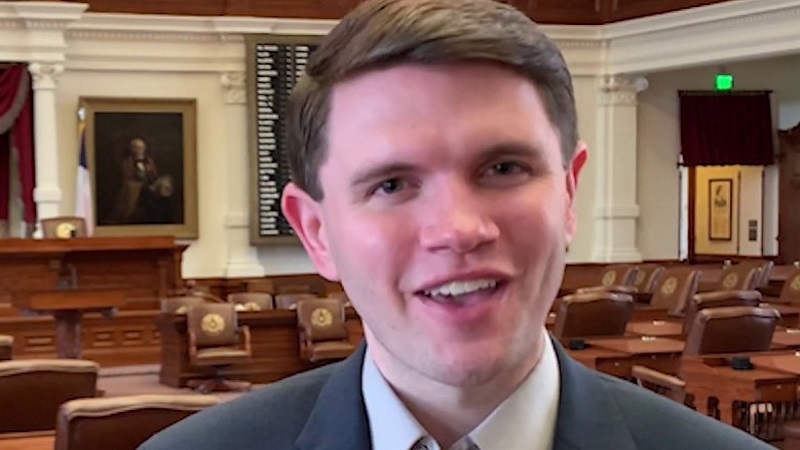
Rep. James Talarico | jamestalarico.com
A panel discussion at the Texas Public Policy Foundation's January event on policy orientation featured a panel discussion with David Bobb, founder of the Bill of Rights Institute; Rep. James Talarico and Michelle Neyrey, a Secondary Social Studied Specialist in the Spring Independent School District.
The panel discussion's topic for the event was named “Live Free: How Should High Schools Teach Civics?”
This is an important topic because only 19 percent of the country’s population achieves a passing score on the 10-question U.S. citizenship test, and only 26 percent can name all three branches of government. To pass the citizenship test, individuals must answer six of 10 questions correctly – passing is 60 percent.
All three panelists seemed to agree that high school is too late to start teaching concepts like separation of powers and the Constitution.
“We need to give [students the] stories of those who fought for freedom, starting in the early grades,” said David Bobb. "The textbooks don’t bring civics to life – instead, they tend to be ideological, dull, and imbalanced."
Neyrey said it’s not just a matter of teachers not fully understanding how they should teach these concepts, it’s a question of time, and that they’re told not to teach.
“We’re worried about our reading and math scores,” she said. “Teachers may be told they don’t teach social studies in a school. It may also be an issue of administration not understanding that the story is important too."
Neyrey also believes it’s important to introduce young students to civics and history stories.
“You can’t just teach the standard – you have to teach the story that goes with the standard,” said Neyrey.
For example, one way to tell the story of the Declaration of Independence is to start from the road to the Revolution so that students can visualize history and see it build, Neyrey said.
Rep. James Talarico calls for critical patriotism – not just accepting what you’re told, but interpreting the knowledge students have gained and applying it to life to better understand.
“You have to give [students] the skills to critically engage with their own patriotism and civic life,” said Talarico, a former educator.
The discussion turned to civic engagement, or action civics, and document-based civics, as well as how to keep action civics from turning into activism too, which is something all three agree shouldn’t happen.
“Students have to know the founding documents, and you can’t do that in Kindergarten. You have to spark interest and more of what’s going on in their lives when they’re in elementary school, like third or fourth grade,” said Neyrey.
Civics education has to build students existing knowledge and life experiences, and it has to be bipartisan, she said.
“We have to give students the context, the skills, and the knowledge to engage and apply knowledge in the real world,” said Rep. Talarico.
That’s where knowledge of the founding documents and action civics come together. Talarico suggests the two approaches to civics education are not mutually exclusive.
To effectively teach civics, educators need to be able to have discussions about hard issues, to use primary source documents, and have the ability to be a good storyteller, or know someone who is.
“We want young people to look at the world and dream of a way the world could be different for themselves and others around them,” Talarico said.





 Alerts Sign-up
Alerts Sign-up